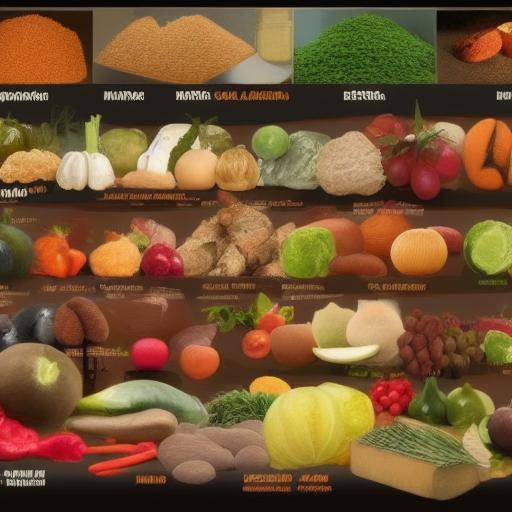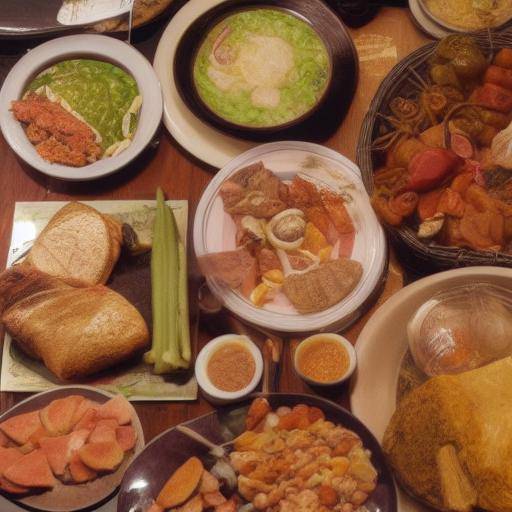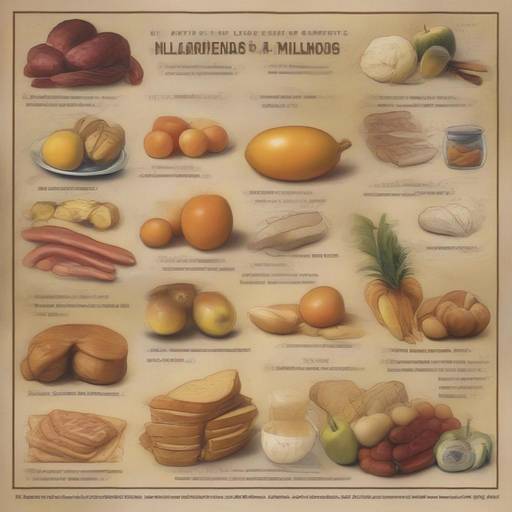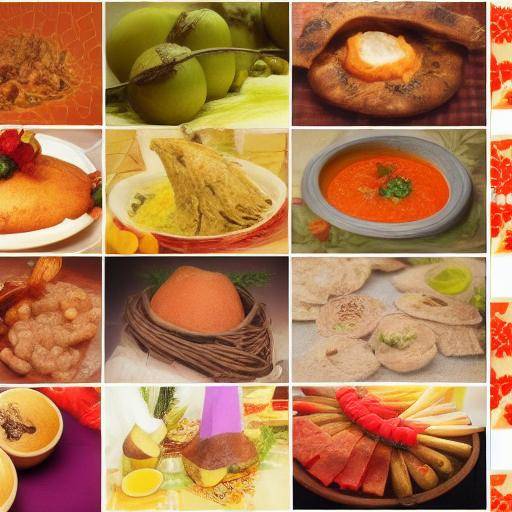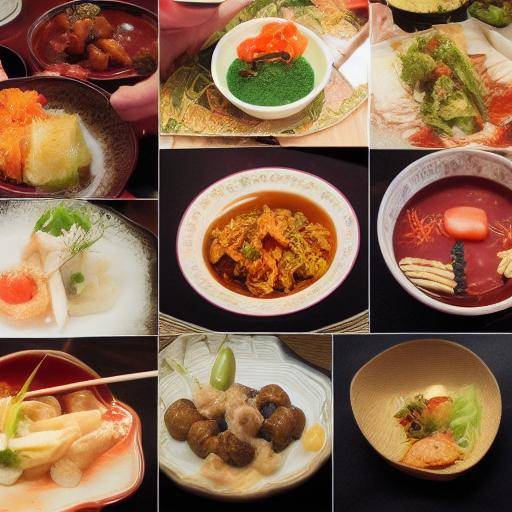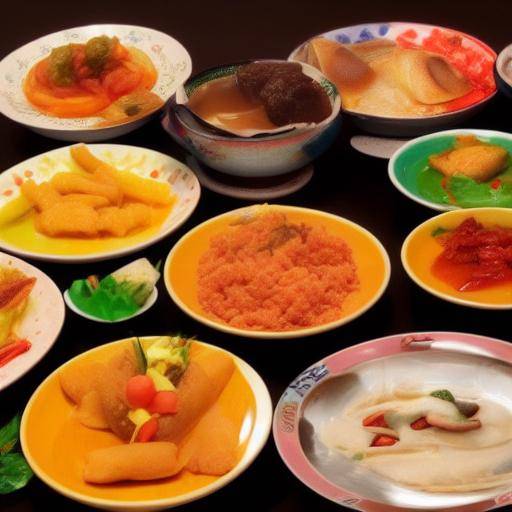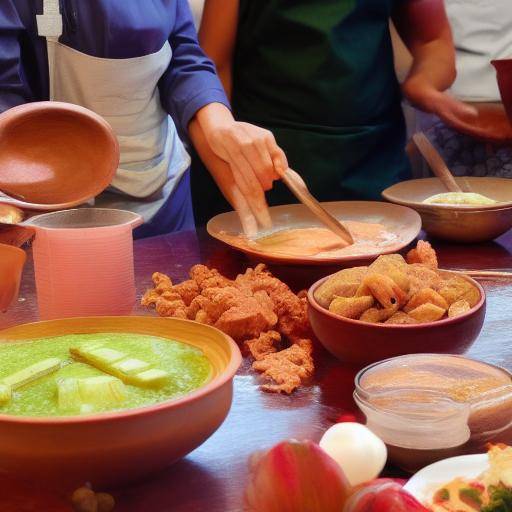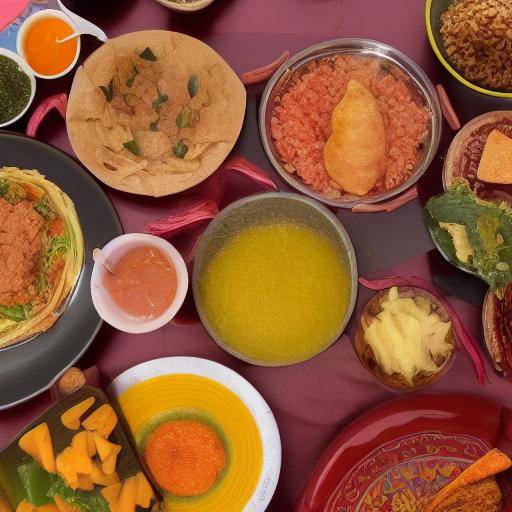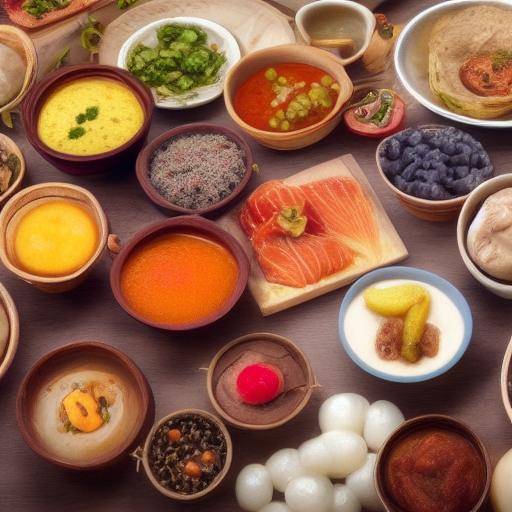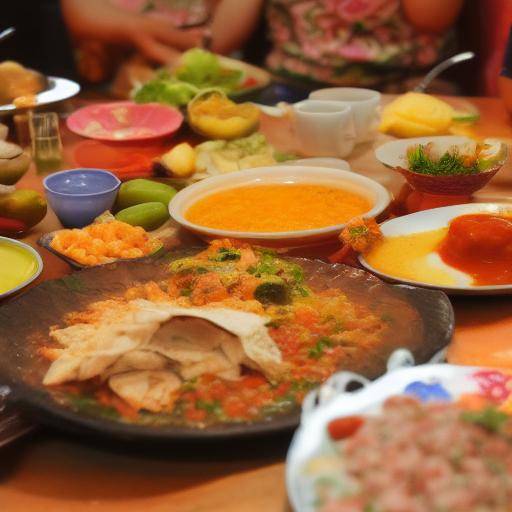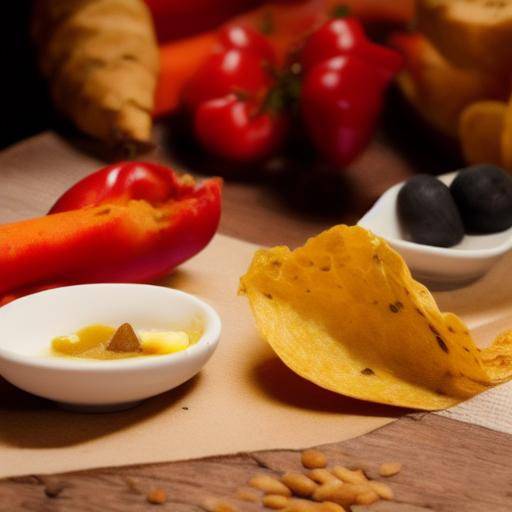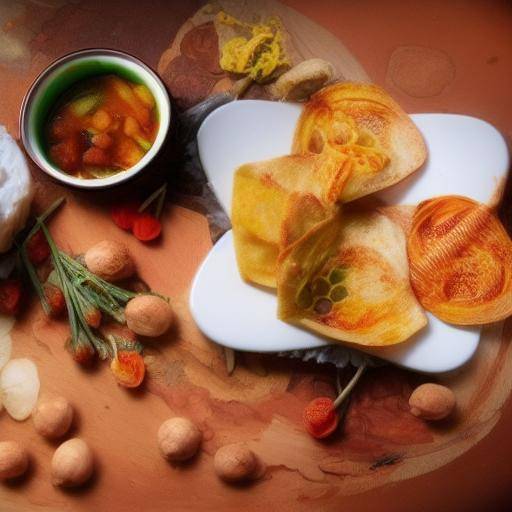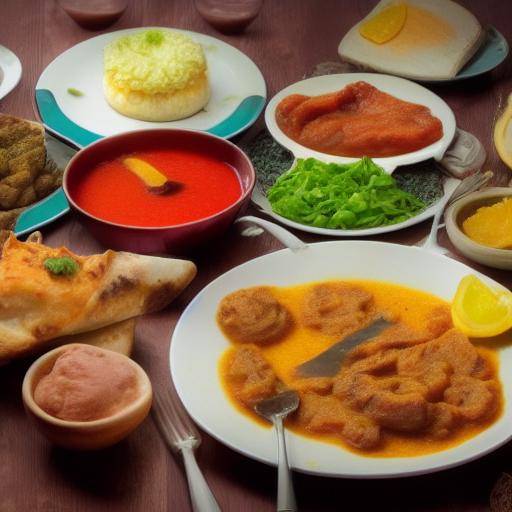
Italian culture is known worldwide for its rich gastronomic tradition that has influenced the way food is enjoyed and appreciated. From pasta to gelato, Italian cuisine is full of unique flavors, colors and aromas that reflect the history and diversity of the nation. In this article, we will thoroughly explore the gastronomic traditions in Italian culture, highlighting its historical importance, its distinctive characteristics, and its impact on the global culinary scenario. In addition, we will provide practical advice and reflections on future trends in this exciting area.
Introduction
Italian cuisine is much more than just a means of nutrition. It is a form of art rooted in the history, geography and culture of the country. It is often said that Italian food is the result of a fusion between passion for food and love for good company. Over the centuries, Italian cuisine has evolved to become one of the most appreciated and respected in the world.
History and Background
The Italian cuisine has deep historical roots dating back to ancient times. From the Roman influence to the various migrations that occurred on the peninsula, Italian cuisine has been shaped by a wide range of cultural and geographical influences. The introduction of new ingredients such as tomato, eggplant and corn had a significant impact on the evolution of Italian cuisine.
Modern Italy is made up of a variety of regions, each with its own culinary specialties. For example, the Sicily region is known for its focus on seafood and spices, while northern Italy is famous for its rice and butter dishes. These regional differences offer a wide range of culinary flavours and techniques that make Italian cuisine something truly unique.
Analysis in Deep
Italian cuisine is not only known for its delicious flavors, but also for the benefits it brings to health. The Mediterranean diet, of which Italian cuisine is a fundamental pillar, has been praised for its healthy properties and its ability to reduce the risk of heart disease and improve longevity. This diet is characterized by the consumption of olive oil, fruits, vegetables, fish and moderate amounts of red wine, making it a popular choice for those looking to maintain a healthy lifestyle.
However, Italian cuisine also faces challenges today, including globalization and the industrialization of food. The search for fresh ingredients and the preservation of traditional recipes have become important concerns for those who value the authenticity of Italian cuisine.
Exhaustive examination
Italian cuisine is not only limited to food preparation, but also covers a number of cultural and social practices. The way Italians enjoy their meals, with long tables full of family and friends, reflects the importance of human connection around food. These family traditions are fundamental in the daily lives of Italians and have been transmitted from generation to generation, giving shape to the cultural identity of the country.
Comparative analysis
By comparing the Italian gastronomic traditions with those of other cultures, similarities and differences stand out. For example, the importance of fresh ingredients and simplicity in the preparation of dishes is a common feature between Italian and Mediterranean cuisine in general. However, the regional diversity of Italy and the influence of different cultures have resulted in a wider range of culinary flavours and techniques compared to other gastronomic traditions.
Practical Tips and Accessible Tips
If you want to enjoy the authentic Italian cuisine, it is important to look for fresh and high quality ingredients. Opt for extra virgin olive oil, ripe tomatoes, fresh herbs and handmade cheeses to get the best results on your Italian dishes. Also, get familiar with the different regions of Italy and their culinary specialities to experience the authenticity of Italian cuisine in its maximum expression.
Industry Perspectives and Expert Reviews
Gastronomy experts agree that Italian cuisine will continue to have a significant impact on the global culinary landscape. The trend towards a more conscious and sustainable diet is leading to greater interest in fresh and local ingredients, something that Italian cuisine has prioritized for centuries. This attention to the details and quality of the ingredients positions Italian cuisine as a benchmark for global culinary innovation.
Case studies and practical applications
Various restaurants and renowned chefs have used the wealth of Italian cuisine as a basis for culinary creativity. From classic dishes reinterpreted to modern creations inspired by the Italian tradition, the versatility of Italian cuisine has demonstrated its influence in a wide range of culinary contexts.
Future Trends and Predictions
As awareness of the importance of healthy eating continues to grow, Italian cuisine will remain a source of inspiration for those who seek to enrich their lives through food. The demand for authentic Italian ingredients and genuine gastronomic experiences is expected to increase, which will encourage greater appreciation of Italian culinary traditions around the world.
Conclusion
In short, gastronomic traditions in Italian culture not only offer a delicious variety of dishes, but also reflect the history, diversity and social identity of the country. The wealth of flavors, the importance of authenticity and the appreciation of the human connection that characterize the Italian cuisine make it a unique expression of culture. Keeping this tradition alive is essential to preserve a culinary legacy that has enriched, and will continue to enrich, the whole world.
Frequently asked questions
What is the most emblematic dish in Italian cuisine?
Pasta is probably the most emblematic dish in Italian cuisine. With hundreds of forms and varieties, Italian pasta is a fundamental element at the table of any Italian family.
What distinctive characteristics does the Italian diet have?
The Italian diet is characterized by the consumption of fresh and high quality ingredients, such as olive oil, vegetables, herbs and seafood. In addition, the concept of "slow food" is fundamental in Italian culture, promoting the paused enjoyment of meals.
How has migration influenced Italian cuisine?
Migration has had a significant influence on the evolution of Italian cuisine. The introduction of new ingredients and culinary techniques has enriched the diversity of flavors and recipes in Italian cuisine.
What is the role of the family in Italian gastronomic traditions?
The family plays a central role in Italian culinary culture. Meals are considered sacred moments to meet, share and enjoy, reflecting the importance of human connection in Italian culture.
What regions of Italy are known for their culinary specialties?
Italy is divided into regions, each with its own culinary identity. For example, the region of Tuscany is famous for its meats, while Naples is known for pizza and Sicily for desserts based on ricotta.
How can you prepare an authentic Italian salsa?
An authentic Italian salsa is prepared with mature tomatoes, olive oil, garlic, and fresh herbs such as basil and oregano. The simplicity and quality of the ingredients are key to achieving a delicious salsa.
In conclusion, the gastronomic traditions in Italian culture are a reflection of the history, regional diversity and social connection that characterize this country. Through its cuisine, Italy continues to delight the lovers of gastronomy with its rich culinary legacy and its commitment to the authenticity and quality of the ingredients.



